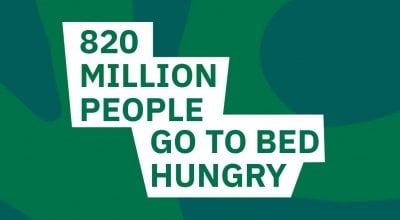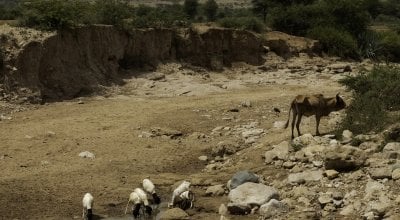
Read our 2023 annual report

Knowledge Hub
Imagine risking cholera, dysentery or typhoid every time you drink a glass of water? This is the shocking reality for 90% of people living in Liberia.
It is 16 years since brutal civil war came to an end in Liberia but the destructive legacy of the conflict still has an impact on the lives of local communities. Wells and pipes bringing clean water to people all over the country were destroyed in the war.
To this day, communities around the country lack access to a source of clean, safe water and families are forced to collect dirty surface water from creeks, puddles and ponds. This water carries a risk of potentially fatal waterborne diseases. However, for so many people, there is no alternative.
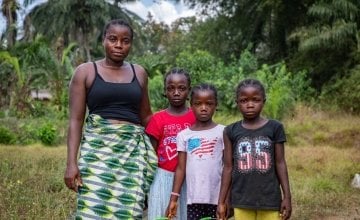
Sadah’s story
Sadah Smith (33) is a mother-of-six from Toe Town in the Rivercess region of western Liberia. Every morning, shortly after she rises at 6am, Sadah grabs a plastic container from her home and goes to collect water for her family from her local creek. This is a particularly grim task during the dry season, when scorching temperatures cause the creek to run low. The water that she gathers is filthy and dangerous, contaminated with leaves, insects and harmful bacteria. It is the only source of drinking water for Sadah and her family.
Faced with no other option, she is left in the harrowing situation of being forced to give water to her children that she knows could make them ill.
“The water makes our stomach run with diarrhoea and it gives us pain. We don’t have any other means of getting water. I don’t feel good about giving it to the children but they still have to drink it.”
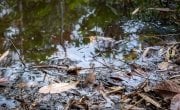
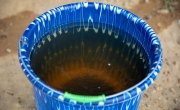
Her village of Toe Town is surrounded by swathes of jungle. Sadah and her children have to walk long distances to access basic services and the nearest hospital takes hours to reach. As the sole breadwinner for the family, time spent travelling to the hospital is time she cannot afford to lose.
A heavy burden
Sadah’s husband suffered an injury that has left him unable to do any heavy physical work. This means that, in addition to all of her household chores and caring for her children, Sadah also has the spend the rest of her day harvesting palm to make some money for the family. Her workload becomes particularly onerous during the height of dry season, when the local creek dries up.
On these occasions, she has to rise at 4am to make a two-hour round trip to the nearest river to collect water for the family, carrying the heavy container all of the way back.
“It takes an hour to get there by foot. I worry about the distance, it is too far. I get so tired from the walking and I have to go then to work.”
A lack of access to clean water is taking a heavy toll on Sadah. Despite her own punishing workload and the high costs of school fees, Sadah is determined that her children get a good education so that they will not have to face the same struggles that she does.
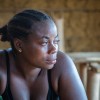
“I want my children to grow up to become somebody and make sure that they will not suffer.”
Irene’s story
In the nearby village of Ceah Town, Irene Togbah works as a cassava farmer. She too rises at 6am every day to do household chores and look after her family before starting work on her farm at 9am. Her husband is a rice farmer so when the rice is ready to harvest, she also helps out with that. It is a gruelling and tiresome schedule.
“Sometimes you feel tired and heavy from the work. Sometimes you get sick,” she explains.
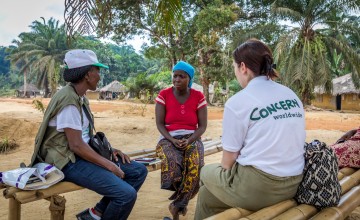
Until recently, Irene’s family had to drink unsafe water from the local creek.
“The water was red, just like that mud. It was so bitter."
Consistently drinking this dirty water has had a detrimental effect on the wellbeing of the family.
“We used to get runny stomach from the water. When the diarrhoea was red, we would have to be carried in a hammock to the hospital. When one person got it, everyone else got it too and everyone needed to go to the hospital.”
Livelihoods disrupted
Like Sadah, Irene remains strong and resilient in the face of her challenges and continues to try and make the best life for her young children. However, Liberia's punishing sun and the illness caused by the contaminated water means that she often struggles to work and earn the necessary money to keep her family fed and in education.
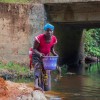
“When you’re sick from the water, you are so weak and you can’t do anything for yourself. Sometimes, I would get the bloody diarrhoea and I wouldn’t be able to work for three weeks.
Water is supposed to be a source of life. It is not supposed to make you sick, or disrupt your life and livelihood. But when the only options are contaminated water or no water at all, there is no real choice.
This is a predicament that nobody should have to face. Our team in Liberia is working to change this reality for communities. Staff are repairing and building wells and pipes in order to bring clean, safe water into villages.
We have now installed a water pump in Irene’s village and it has been transformational for her and her family.
“There was huge excitement when the pump came to the community. Since the pump came and we are drinking that water, we are not sick anymore. We are very happy for the pump and thankful to Concern for bringing it to us.”
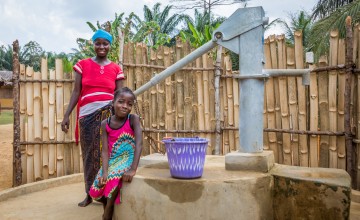
You can help
Thankfully for Sadah, our team has also now installed a well in Toe Town so that her community will enjoy the same benefits to their health and their day-to-day lives as Irene has experienced in Ceah Town.
We’re appealing for support to help our team bring clean water to more communities in Liberia. You can help transform lives by donating today.



